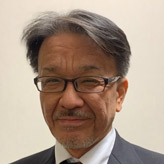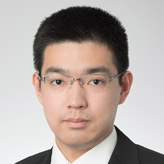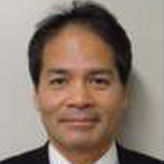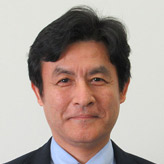SIP-adus Workshop 2021
Abstracts & Speakers List
- Nov. 9 [Tue.]
- Opening Session / Regional Activities
- Impact Assessment
- Service and Business Implementation /
FOTs + Human Factors - Japanese Government
- Nov. 10 [Wed.]
- Dynamic Map
- Connected Vehicles
- Safety Assurance
- Cybersecurity
- Closing
- Cybersecurity
- It is expected that UN regulation will soon be adopted to detect and respond to cyber attacks, but it is not easy for each OEM to determine and implement the optimum detection performance level for their communication system. In this research, focusing on in-vehicle IDS / IDPS, we will consider the evaluation method for selecting the optimum IDS/IDPS for each OEM's communication system, technical requirements for the initial response/recovery action when cyber attacks detected and the basic thought of establishing V-SOC which can be said to be a competitive area for each OEM.
Moderator
-

Shigeru Uehara
Chair of Governing Board, J-Auto-ISAC
Project General Manager, E/E Architecture Development Div., Toyota Motor Corporation
JapanJoined TOYOTA MOTOR Corporation in 1982.
Developesd TOYOTA's first Door Multiplex network system in 1992.
Presented a paper for SAE at Cobo-Hall/Detroit in 1994.
Developesd TOYOTA's original CSMA/CD Multiplex network system(BEAN) in 1997.
Presented a paper for Engineering Symposium at Makuhari Messe/Tokyo in 1999.
Worked as a director of Electronics area in TOYOTA MOTOR Europe in 2009-2011.
Working as a chief examiner of J-Auto-ISAC/JAMA from 2017.
Working as a leadr of SIP adus Cybersecurity from 2019.
Speaker
-

Nishant Khadria
Director
Cyber Emerging Technologies
Deloitte
GermanyNishant has more than 22 years of experience in automotive industry with focus on vehicle security, software quality, supplier management, security assessment and vehicle cyber monitoring (VSOC) serving automotive OEMs and suppliers across the globe. He has deep understanding of software development lifecycle including use cases, requirements, architecture, design and tests to ensure timely implementation.
-

Shinichi Kan
Associate
Technology Consulting
PwC Consulting Japan
JapanAs a consultant at PwC, he has worked on projects related to IoT security in a major electronics company and he has researched software functionality/quality evaluations of IDaaS products, which are cloud-based authentication and authorization software.
He also worked for a global investment company on projects to comply with global regulatory standards such as NIST CyberSecurity Framework and ISO/IEC 27001.
In addition, he also has experience of research on the hardware side, such as the electronics devices and circuits used in automobiles.
Recently, he has been in charge of research on security in the automotive industry, primarily on threat intelligence in vehicles. -

Shigeyuki Kawana
Chair
Electronics Platform sub-committee
Japan Automobile Manufacturers Association, Inc.
JapanChair person of Electrical subcommittee of Japan Automotive Manufacturers Association. And a technical secretary of Functional safety subcommittee, Cybersecurity subcommittee and Automated vehicle standardization committee in Japan Society Automotive Engineering. And working as a expert for ISO/SAE JWG21434 Cubersecurity Engineering standard and Functional Safety standard, ISO26262. A part time lecturer at Nagoya University.
-

Frank Kargl
University Professor
Institute of Distributed Systems
Ulm University
GermanySince 2012, Prof. Kargl is the director of the Institute of Distributed Systems at Ulm University, Germany. Before that, he was associate professor at the University of Twente, The Netherlands. His research interests are in the area of mobile and self-organizing networks with a special focus on vehicular networks and network security and privacy. Many of his research projects address the security and privacy of connected and automated vehicles. Examples include SeVeCom, PRESERVE, or more recently the SecForCARs project. Prof. Kargl also contributed to standardization through ETSI and C2C-CC and world-wide harmonization. He is member of the SAVE-DEJP project where Japanese and German partners jointly discuss challenges and solutions for connected, automated vehicles.
-

Tsutomu Matsumoto
Professor
Faculty of Environment and Information Sciences
Yokohama National University
JapanTsutomu Matsumoto is a professor of the Faculty of Environment and Information Sciences, Yokohama National University, and directing the Research Unit for Information and Physical Security at the Institute of Advanced Sciences. Prof. Matsumoto also serves as the Director of the Cyber Physical Security Research Center (CPSEC) at the National Institute of Advanced Industrial Science and Technology (AIST). Starting from Cryptography in the early '80s, Prof. Matsumoto has opened up the field of security measuring for logical and physical security mechanisms. He received a Doctor of Engineering degree from the University of Tokyo in 1986. He is currently interested in research and education of Embedded Security Systems such as IoT Devices, Cryptographic Hardware, In-vehicle Networks, Instrumentation and Control Security, Tamper Resistance, Biometrics, Artifact-metrics, and Countermeasure against Cyber-Physical Attacks. He serves as the chair of the Japanese National Body for ISO/TC68 (Financial Services) and the Cryptography Research and Evaluation Committees (CRYPTREC) and as an associate member of the Science Council of Japan (SCJ). He was a director of the International Association for Cryptologic Research (IACR) and the IEICE Technical Committees' chair on Information Security, Biometrics, and Hardware Security. He received the IEICE Achievement Award, the DoCoMo Mobile Science Award, the Culture of Information Security Award, the MEXT Prize for Science and Technology, and the Fuji Sankei Business Eye Award.

